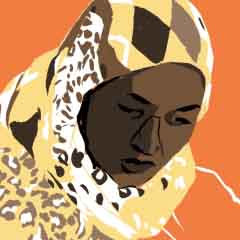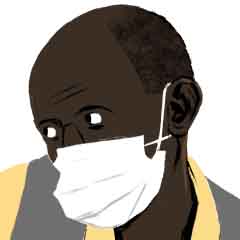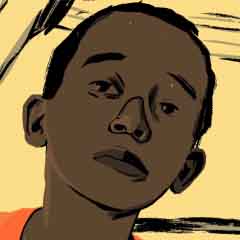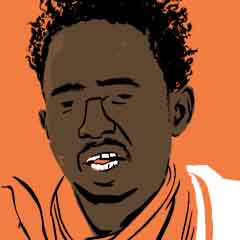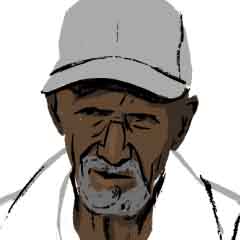Terror in Tigray
The Ethiopian refugee crisis
Civil war has displaced many in Ethiopia's Tigray region and there is no end in sight to their misery. VOA's Heather Murdock travels to the largely cut-off conflict zone, as well as refugee camps in neighboring Sudan, to bring the story of a complex political situation and the growing humanitarian disaster.
Tigray Conflict Timeline
August 20, 2012
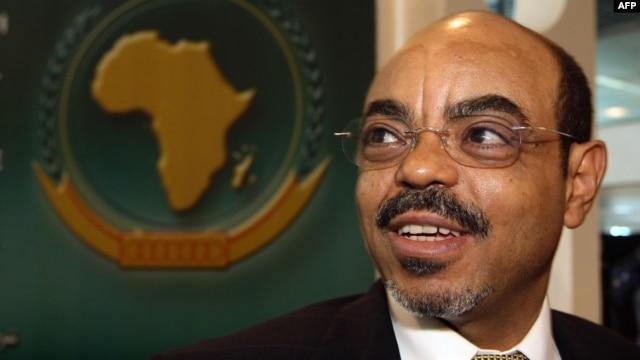
Death of PM Meles Zenawi
After more than 20 years leading the country, Prime Minister Meles Zenawi dies unexpectedly. His death signals the end of an era when ethnic Tigrayan elites held considerable power in government, military and business. Learn more
April 2, 2018
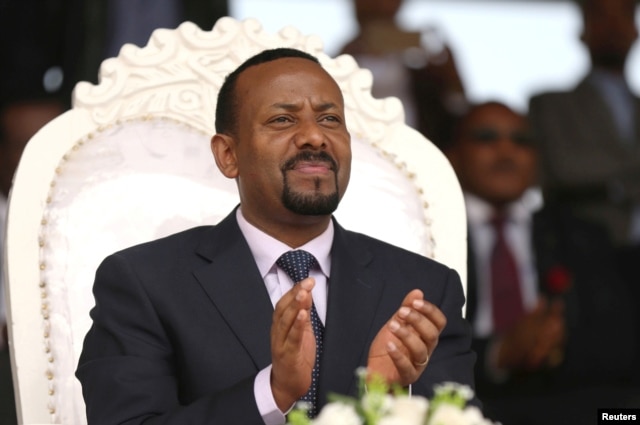
Abiy Ahmed Becomes PM
Abiy Ahmed, an ethnic Oromo, becomes prime minister following more than five years of rule by technocratic leader Hailemariam Desalegn. Abiy negotiates a peace deal with neighboring Eritrea and releases political prisoners. In 2019, he receives the Nobel Peace Prize. Later that year, he dissolves the ruling Ethiopian People’s Revolutionary Democratic Front, or the EPRDF, and founds the Prosperity Party. Learn more
September 9, 2020
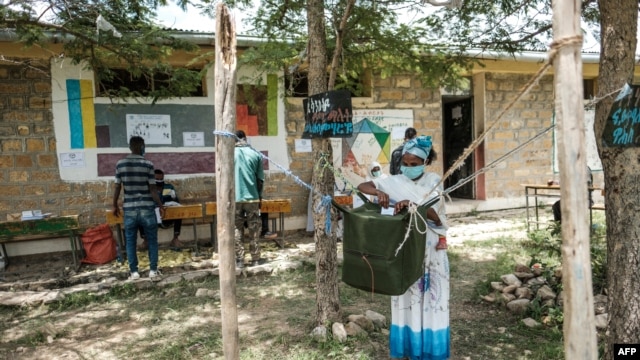
Tigray Region Elections
The Tigray region holds elections in defiance of Abiy and the federal government, which had canceled elections, citing the COVID-19 pandemic. Abiy calls the Tigray elections “illegal.” Learn more
November 4, 2020
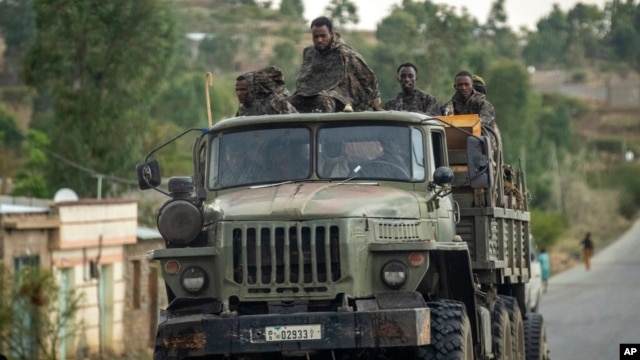
Military Base Attack
The central government accuses forces loyal to the Tigray People’s Liberation Front (TPLF) of attacking federal military bases in northern Ethiopia, seizing equipment and capturing soldiers. In subsequent days, Ethiopian federal forces, aided by forces from the Amhara region and neighboring Eritrea, begin a campaign to retake towns in Tigray occupied by the TPLF. Learn more
November 9, 2020
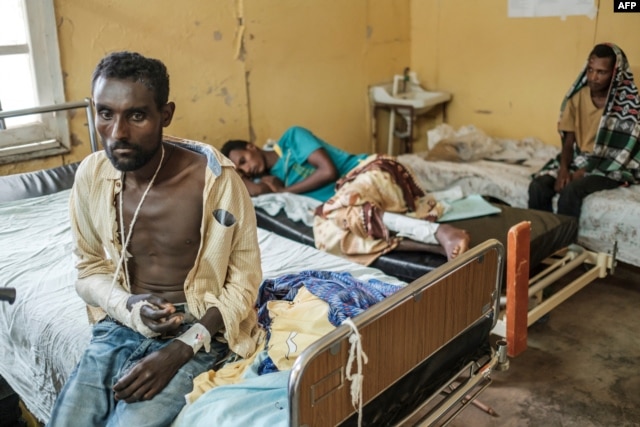
Ethnic Violence
Ethnic violence in the town of Mai-Kadra causes tens of thousands of people, mostly Tigrayans, to flee the country. Amhara and Tigrayans say they are the victims of the attacks. Residents of Humera also say artillery fired from Eritrea targeted the town, according to Human Rights Watch. Learn more
November 14, 2020
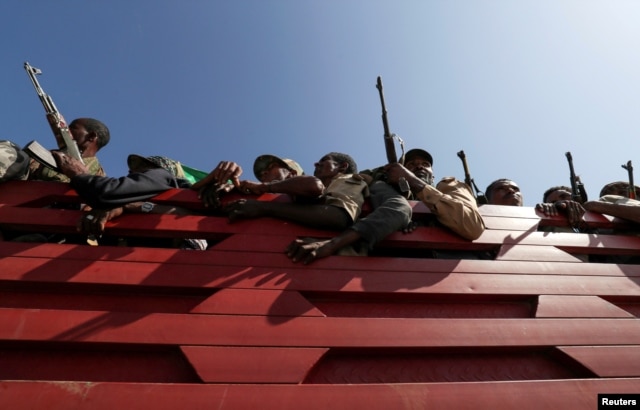
TPLF Launches Rocket
The conflict spreads further when the TPLF launch rocket attacks against Eritrea. TPLF leaders accuse Eritrea of involvement in the conflict and say it was a “legitimate target” because Asmara International Airport and other locations in Eritrea were being used to support Ethiopian federal forces. Learn more
November 28, 2020
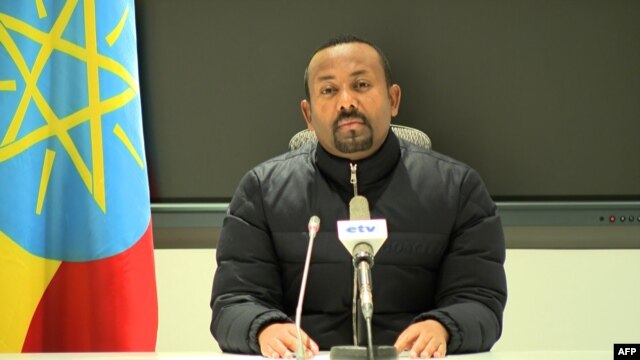
End of Abiy’s ‘Law Enforcement Operation’
Abiy announces an end to what he calls a “law enforcement operation” after federal forces retake the city of Mekelle, the Tigray regional capital. Learn more
November 28 and 29, 2020
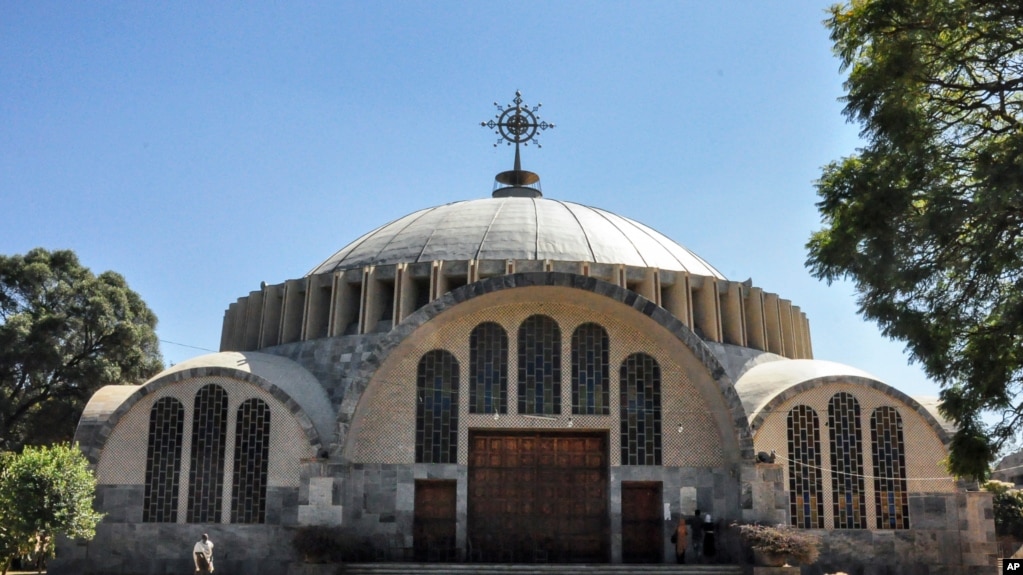
‘Massacre’ in Axum
Eritrean soldiers are accused of committing a massacre in the Tigrayan town of Axum. A report by Amnesty International says the forces went door to door arresting and executing hundreds of unarmed men and boys. The forces are also accused of looting and indiscriminate shelling. Learn more
March 23, 2021
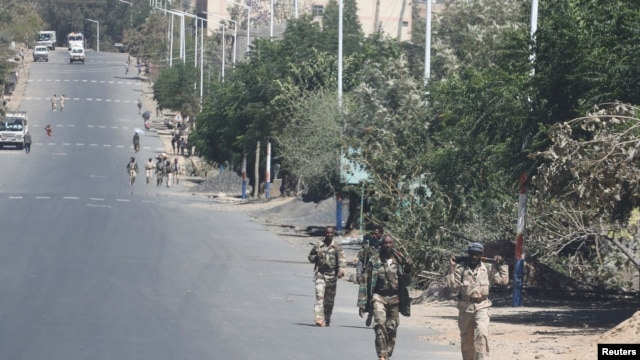
Abiy Acknowledges Eritrean Presence
After months of denials, Abiy confirms and acknowledges the presence of Eritrean troops in the Tigray region. Learn more
June 11, 2021
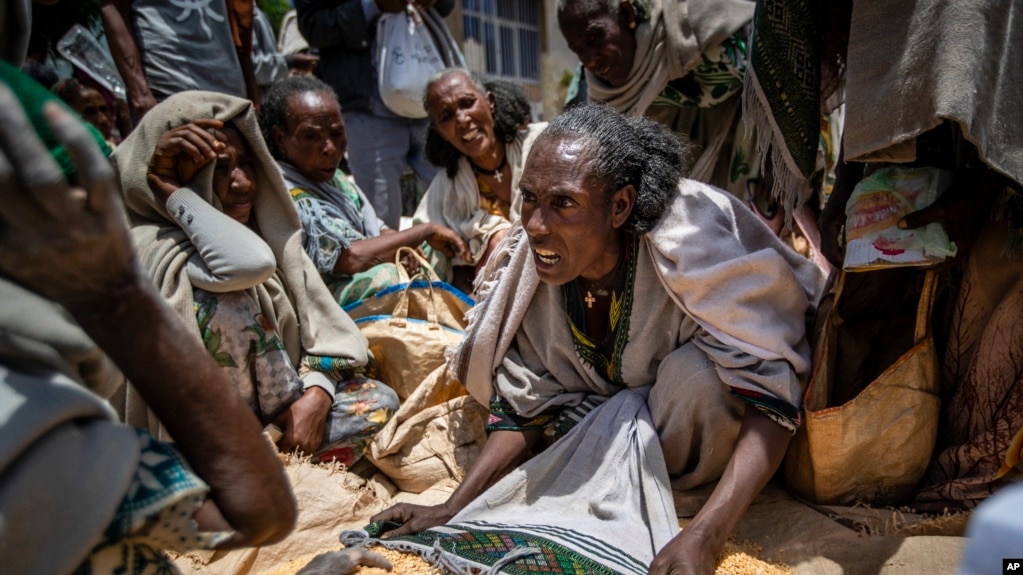
Famine and Food Insecurity
The United Nations reports that 350,000 people in Tigray are suffering from famine, with most of the region’s 5.5 million people at risk of food insecurity. Aid groups say they are unable to reach those in need due to governmental restrictions. Learn more
June 28, 2021
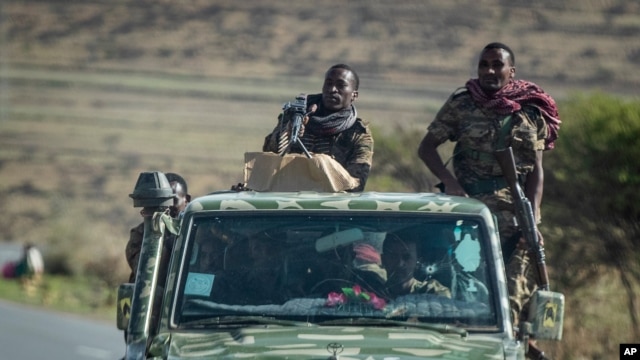
Government Cease-fire
The federal government declares a unilateral cease-fire and withdraws its forces from Mekelle. Learn more
June 29, 2021
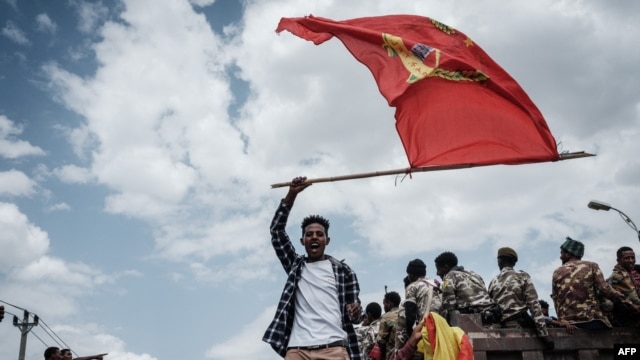
Tigray Forces Retake Mekelle
Tigrayan forces retake Mekelle, entering the city to cheering crowds. Thousands of Ethiopian prisoners of war are paraded through the streets. Learn more
October-November, 2021
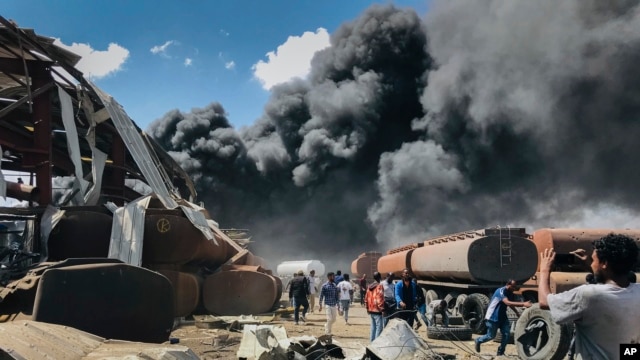
Government Airstrikes
Ethiopian jets conduct airstrikes on targets in Mekelle and surrounding areas in the Tigray region and beyond. The government says it used precise strikes to hit military targets, including training camps. Tigrayan forces and residents say the attacks killed civilians. Learn more
October 31, 2021
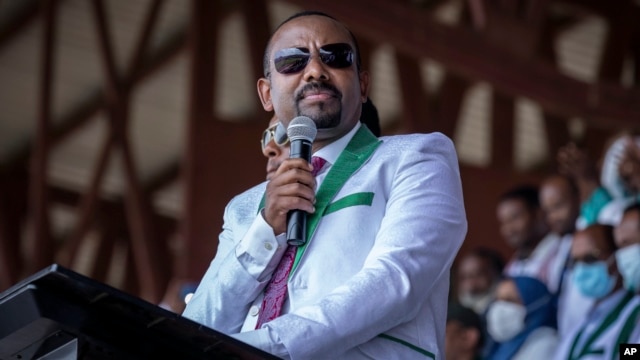
Facebook Removes Abiy’s Comments
In a speech posted on social media, Abiy says the advance of Tigrayan forces was “pushing the country to its demise.” He calls on citizens to take up arms to defend the country and bury “the terrorist TPLF.” Facebook later removes the speech, saying it violated community standards and incited violence. Learn more
November 2, 2021
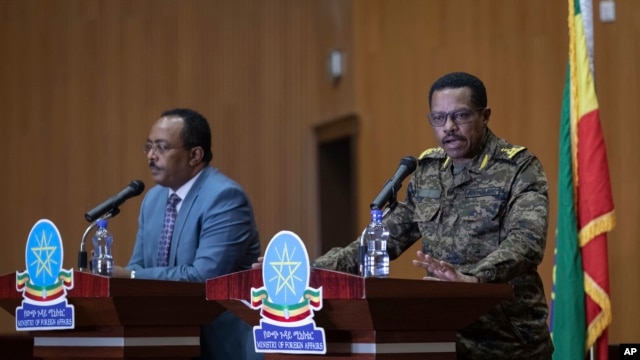
State of Emergency
Ethiopia declares a six-month state of emergency, as Tigrayan forces say they are advancing toward the capital city, Addis Ababa. Learn more
Credits
Editing
Animation and graphics
Producers
Sudan
Ethiopia
Translators
Music
“Shinha Wuley”
